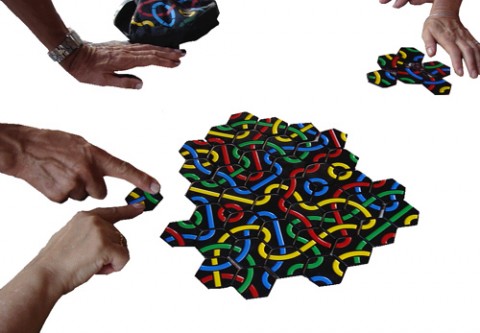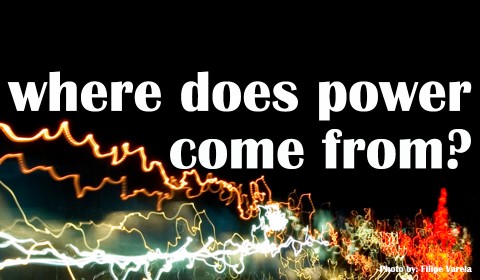Archives
May 7, 2010
(A re-posting from June 2009)
One of the blessings I’ve experienced in our social change work as process experts and professional facilitators is the exposure we get to have to various fields of social change work. Since last October, my colleague Andrea and I have had the pleasure of consulting with an amazing collaborative of stakeholders, the Springfield Health Equity Initiative, who have determined to build a plan to reduce the incidence of diabetes in the black and brown neighborhoods in the city of Springfield, MA. Even more boldly, these dedicated and thoughtful leaders have also chosen to take up an analysis for their work that incorporates how systemic, government sanctioned, racial discrimination has played a direct role in creating the egregious disparities in health outcomes we see today among black and brown folk in the U.S., and regardless of class. Read More
May 6, 2010

|Photo by jordigraells|http://www.flickr.com/photos/jordigraells/2097554407|
“In dealing with complex problems, our ability may be bounded, but our diversity is not. Diversity – be it based on identity, training or vocation — may be our best asset.”
– Scott E. Page
In last Thursday’s post, we talked about the importance of developing a shared identity among stakeholders, and doing this early in a collaborative process, as a way of developing greater commitment to collective interests as well as bolstering the inclination to think about and act in accordance with more long-term risks and benefits. Clearly more needs to be said about the WHO that is engaged in this work and how this aligns with sustainability.
Read More
May 5, 2010

More about power and group processes. There have been a mountain of books written about the “bases of power” and the “types of power”. I’ve done some work to try to boil it down – and find thinking about this very useful in moving forward the conversation about how to address power issues in group processes.
Read More
May 4, 2010

|Photo by TeresaM3Kids|http://www.flickr.com/photos/teresam525/3530463356/|

|Photo by Johan J.Ingles-Le Nobel|http://www.flickr.com/photos/43147325@N08/4370125469/|
I’m a big fan of Kevin Kelly. His latest blog post reflects on what he calls “Two Kinds of Generativity” and it has me thinking about the next phase of movement. Kelly describes the evolutionary process of an innovation. He speaks of the first stage as one that is “vague, incomplete and open to change.” This first stage is appealing to the early adapters, “tinkerers, nerds, fans, and hacks who will make it do all kinds of things no one had thought of.” Read More
April 30, 2010
(A repost from April 2009)
I suppose it’s the overlooked companion of Change: Anticipation. It’s the silent provocateur that causes us to peer into the distance, squint past the horizon, turn the proverbial corner, stand on the brink, gear up for the jump off, and on and on. It is the automatic reflex within us that kicks into gear once we have a cognitive or instinctual knowing, that things are about to…shift.
That Change is afoot, we well know: Sam Cooke crooned it; Grandma prayed for it; Obama touted it; analysts predicted it; planners plan for it. My thoughts here turn to unpacking a hunch that what we are missing out on, quite unbeknownst to us, is the wisdom, creativity and knowledge available to ( through?) us/clients in that (anticipatory space of) calm before the storm (of Change). Scharmer’s naming and exploration of pre-sencing gets at it; Gibran’s queries around testing for “readiness” in groups is along the same lines; prototyping as a way into solving complex problems is yet another expression within this same sphere. Rather than an anxious, fear-based, controlling energy wherein we brace for change, I’m suggesting that there is a playful, curious, self- and Other-awareness we can decide to adopt that enables us to learn from Change, and how to navigate it, perhaps even before it occurs.
Read More
April 29, 2010

|Photo by Peter Forbes|http://www.wholecommunities.org/programs/|
“To work at this work alone is to fail.”
-Wendell Berry
Picking up from where I left off last Thursday . . . How might collaboration be a key to making the sustainability shift? At its best, collaboration is the act of modeling complex systems at work, and with awareness and intention comes critical adaptive capacity. The goal is to achieve collective and distributed intelligence that can respond in timely ways to threats to sustainability (stressed ecosystems, injustice, etc.) and that can be proactive in creating optimal conditions for future generations to meet their needs. That’s the ideal, right? How do we get there?
Read More
April 28, 2010

|Photo by Carina Ice|http://www.flickr.com/photos/carinaice/4232182696/|
One of the first questions you might ask when thinking about looking at power dynamics in group facilitation is what IS power anyway? This seemingly simple question, of course, is not really all so simple after all. What do you think? How would you describe power?
When I first started trying to answer this question for myself, I found that I was overwhelmed with material -? literally hundreds and hundreds of books about what power is, where it comes from, how it operates, etc.? For many, a definition of power has to do with the ability to force something to do something they wouldn’t have done otherwise – a coercive definition of power.? Feminist psychologist Jean Baker Miller described power as “the capacity to produce a change.” Others (and in fact, our common terminology) talks about power as a “thing” that can be divided, shared, owned, and transferred. Read More
April 27, 2010

IAF Workshop
I’m just getting back from the International Association of Facilitator’s North America Conference and co-leading a workshop focused on the facilitator’s inner journey. It was a cool set up. The presenters included our convener, Larry Dressler as well as experienced facilitators, Erica Peng, Roger Schwarz and Beatrice Briggs. Read More
April 26, 2010

|Photo by Qoncept|http://www.flickr.com/photos/37418570@N03/4488784822|
With another public offering of Pathway to Change on the horizon (May 4-6), I’ve been putting my thinking towards how best to encapsulate this robust course, which focuses on skills and frameworks for designing and facilitating collaborative change efforts. The genius behind IISC’s courses in general (for which I can take absolutely no credit) is the simple elegance of the visuals that capture many of the essential ideas and steps. That said, we can sometimes find ourselves awash in images and wanting something a little more to the point to guide us. For these purposes, I’ve boiled the course down to a series of key questions that stand behind the various models. So here is the Curtis’ Notes version (which also applies to a related course, Engage for Results, that we offer to foundations in partnership with GEO):
Read More
April 23, 2010
(This is a re-post from April 2009)
I write this on the eve of the 3rd day of a training session of our Facilitative Leadership course, where the last of 7 practices,“Celebrate Accomplishment”, often gets the short shrift on this last day of training. The verdict is still out in terms of whether we will give it its just due for tomorrow’s class. Yet, I find myself wrestling with a provocative body of information I became aware of through a recent tweet I received on the subject of praise.
Read More
April 22, 2010

|Photo by mind_scratch|http://www.flickr.com/photos/mind_scratch/2434031231|
Wishing you a hopeful Earth Day, and thinking of the good people gathered in Bolivia for the World People’s Summit on Climate Change . . .
For the past few decades, the Interaction Institute for Social Change and Interaction Associates have worked to develop the collaborative capacity of individuals, organizations, and communities with the conviction that this holds the promise of greater effectiveness with respect to shared missions and goals. We have long upheld and witnessed the importance of bringing more minds and hands together for the purposes of creating insight, understanding, alignment, agreement, strategy, and shared ownership. Lately, I have been trying to specifically clarify the value all of this has to offer the unsustainable relationship we have with our planet.
Read More
April 21, 2010

|Photo by Great Beyond|http://www.flickr.com/photos/tonyjcase/2759363747/|
A few years ago, I researched and wrote a masters’ thesis on addressing power dynamics in collaborative process design and facilitation.? I was doing the study based on great questions raised over the years by Cyndi Suarez (Co-Director of Northeast Action) – and with the belief that if power dynamics are not well understood and addressed, group process facilitators are likely to unknowingly reinforce the status quo – a scary thought for those of us working on social justice and social change!
Read More









